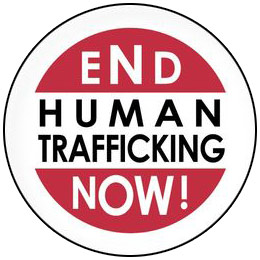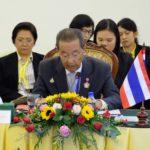
The Royal Thai Air Force brought home 68 Thai fishermen last week from the island of Ambon in Indonesia where they said they had been stranded after being trafficked onto trawlers and used as forced laborers, as government inspections of fishing vessels to prevent trafficking began in earnest at four key ports in Southern Thailand.
“I never thought I would ever return to Thailand,’’ Phongsathon Bunon, a 19 year-old returnee told the Bangkok Post newspaper after clearing immigration at Don Muang airport in Bangkok on Thursday. He said he had been held captive as a slave laborer on a Thai-owned fishing vessel in Indonesian waters since he willingly signed on as a crewmember at age 13, not realizing the fate that lay in store. He described his experience as “six years of hell.”
Phongsathon was among the group of 68 Thais transported from Indonesia back to Bangkok in a C-130 aircraft by the Royal Thai Air Force. The plight of Thai, Myanmar and Cambodian fishing crew stranded or held captive on Ambon and Benjina islands in Indonesia gained worldwide attention last month after news agencies reported on the links between trafficking and forced labor in Thailand’s fishing industry and seafood exports.
Thailand’s Department of Special Investigations (DSI) had been investigating reports of trafficking and abuse of Thai fishermen in Indonesia since December and facilitated the return of some before the news reports broke. Hampered by distance and the fact that its investigators have no jurisdiction in Indonesia, the DSI probes were moving slowly. The publicity from the news stories, however, helped increase cooperation with authorities in Indonesia and generated greater public pressure in Thailand for the authorities to act immediately.
Prime Minister Prayut Chan-o-cha has made the fight against human trafficking a national priority. He has ordered the various state agencies dealing with facets of the problem to work in closer coordination with each other and with police and prosecutors. The Prime Minister has put state officials and the private sector on notice that trafficking will not be tolerated in any way, shape or form and that those engaged in or facilitating it will be punished. The National Legislative Assembly last week increased penalties for traffickers, allowing for capital punishment in cases where victims died.
As part of the broad-based efforts to battle trafficking, officials began “port in, port out” inspections and monitoring of trawlers over 30 tons at Chumphon, Ranong, Songkhla and Phuket ports, all key fishery centers on the Southern Thai peninsula.
A total of 26 "port in, port out" control centers in 22 seaside provinces will be operating by May, to inspect the over 50,000 fishing vessels that have registered with the government.
“The crews on board will be counted and checked if they have a work contract and are legal. The fishing equipment and the caught fish will also be inspected to make sure that they are using permitted equipment and catching the allowed kinds of fish,” said Joompol Sanguansin, director of the Fisheries Department.
For more information and updates about Thailand's policies and actions against trafficking in persons and related issues, visit www.thaianti-humantraffickingaction.org




